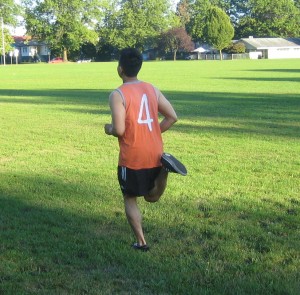Atrial fibrillation mainly affects the upper chambers or atria of the heart. Those who have atrial fibrillation experience erratic heartbeats caused by the abnormal electrical signals in the heart. The electrical impulses can wrongly circulate through the heart, causing the atria to contract irregularly where the heart beats quickly, slowly or erratically. By enrolling in a class on first aid today, you can readily determine if the individual is experiencing this condition.
Many individuals who have atrial fibrillation experience episodes instigated by a specific trigger. By recognizing these triggers and avoiding them, it can help the individual properly manage the condition.
Emotional triggers
Remember that emotions play a vital role in various bodily functions. When an individual is sad or upset, it can cause appetite loss. Being stressed out can cause tight muscles while anxiety or excessive happiness can cause the heart to race or feel as if the heart skipped a beat. The variety of emotions in certain scenarios can trigger atrial fibrillation in some individuals.

Illness and fatigue
Physical illness, sleep deprivation and recent surgery are considered as common triggers for atrial fibrillation. Stress will increase the risk for abnormal electrical activity in the heart. It is important to get enough sleep at night and eat a balanced diet for those who have atrial fibrillation.
Exercise
Exercise is considered as a healthy activity and can even help individuals cope with the condition. On the other hand, in rare cases, an increase in physical activity can trigger episodes of atrial fibrillation.
Hormones
The usual fluctuation of hormones can trigger atrial fibrillation among women. The increase of heart arrhythmias tend to occur among women who were diagnosed with problems during menstruation. Even perimenopausal women face an increased risk for atrial fibrillation by the time the period stops.
Alcohol
Alcoholic beverages can trigger atrial fibrillation in many individuals. Some experience the symptoms just by drinking a glass while others do not feel any effect unless they consume heavily. In a study conducted, there is a link between the consumption of alcohol and the vagal tone in atrial fibrillation. The vagal tone is the level of activity of the vagus nerve. Those who have alcohol as a trigger are likely to experience heightened vagal activity which leads to fibrillation episodes.
Medications
When an individual has atrial fibrillation, a doctor should be consulted before taking any over-the-counter medications or supplements. Nasal spray decongestants and cold medications are usual triggers for those who have heart arrhythmias.
Caffeine
Caffeine is a stimulant that can heighten the central nervous system and increase the heart rate. In some, this can trigger an episode of atrial fibrillation. Remember that the effect of caffeine is different for each individual. In case caffeine worsens the arrhythmias, avoid caffeine-based beverages.
Dehydration
Dehydration can trigger the symptoms. Any change in the level of fluid in the body can affect several bodily functions including the heart. Take note that caffeinated beverages and alcohol can worsen dehydration. The individual should drink plenty of water throughout the day especially during warm weather or when exercising.
